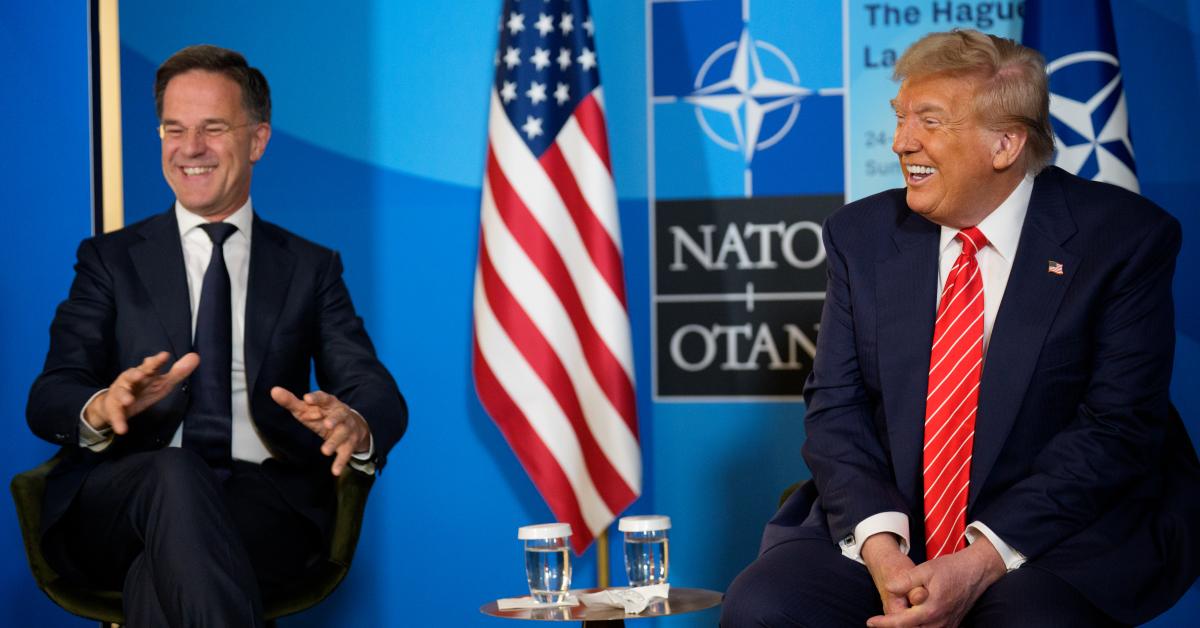NATO members agree to Trump demand to up NATO defense spending but for some paying seems long shot

Barely five months into Donald Trump’s second term, members of NATO have agreed to an ambitious spending surge of spending 5% of their economic output on defense. But agreeing is one thing –paying for it is something else.
The pressure is already showing, especially in Italy, where Minister of Defense Guido Crosetto said that NATO had surpassed its relevance.
“NATO no longer has a reason to exist. The Atlantic Ocean was once the center of the world. Now the entire world is at the center. We should have relationships across the whole world, he said ahead of the NATO summit that concluded last week in the Netherlands, where Trump successfully pushed NATO allies to increase their investment in defense spending from 2% to 5% of Gross Domestic Product.
Grosetto represents one of NATO’s worst under-performers when it comes to military spending and is one of its most indebted countries. But governments across the 32-nation NATO bloc are strapped for cash. Italy’s total public debt is equal to 137% of its economy. France is nearly as bad off at 112%, while Greece is the weakest (164%).
Those aren’t just budget constraints, they’re fiscal brick walls.
“We have been living beyond our means for decades,” Veronika Grimm, an economist with Germany’s University of Nuremberg and a member of the German Council of Economic Experts, told Just the News. “Social spending will continue to rise and will be difficult to curb because of demographic trends. Increasing defense spending means something else must be reduced.”
Aside from military spending, NATO countries spend large parts of their budgets on health care, pensions, and education.
Until recently, the 2% goal, agreed to in 2014, was itself seen as a stretch. When Trump won his first term in 2016, only five of 28 member states were meeting it. By last year, when Trump won again, at least 18 of the 32 nations in the expanded NATO had reached the threshold and the alliance's average stood at 2.2 percent, according to data from SIPRI, a Swedish think tank, a response to global trends.
“For the second year in a row, military expenditure increased in all five of the world’s geographical regions, reflecting heightened geopolitical tensions across the globe,” SIPRI said in a statement. “The decade-long growth in global spending can be partly attributed to spending increases in Europe.”
But as of this year, no country meets the 5% target agreed to by 2035 and only a few are even close: Poland (4.1 %), Estonia and the U.S. (both at 3.4 %), and Latvia (3.25%). All but the U.S. are on Europe’s Russia-facing eastern flank. But several that are farther from Russia still remain below the old target, including Canada (1.3%), Italy (1.5 %), and Spain (1.3 %).
British Prime Minister Sir Keir Starmer has pledged to meet the new NATO target of 5% of the country's GDP on national security by 2035. Trump has been critical of Spain, which he calls "notorious" for its low spending, according to the British Broadcasting Corporation.
Reaching the 5-% target would nearly triple total NATO-wide defense spending from less than $1 trillion today (about equal to the total GPD of The Netherlands, which hosted the summit where the target was agreed to) to around $2.8 trillion (around France’s current GDP), based on the higher target and countries anticipated economic growth. It would account for what is being hailed as “the largest peacetime military spending increase in modern history.”
The agreement does allow some wiggle room: spending on cyber-security, R&D, and other military-adjacent priorities count toward the target, a shift from previous rules that focused exclusively on traditional military spending.
It also calls on countries to finalize blueprints for reaching the target by next year and a NATO-wide review in 2029 before the target date in 2035.
Oana Lungescu, a distinguished fellow at the Royal United Services Institute in London and a former NATO spokesperson, said that while the financial challenges are steep the political consensus is clear – at least for now.
“They have all said they would do it,” he said. “There will be lots of questions about how long it will take them to get there. These are the hard questions for heads of state and government, for all societies … [but] our prosperity, our way of life, depends on our security.”